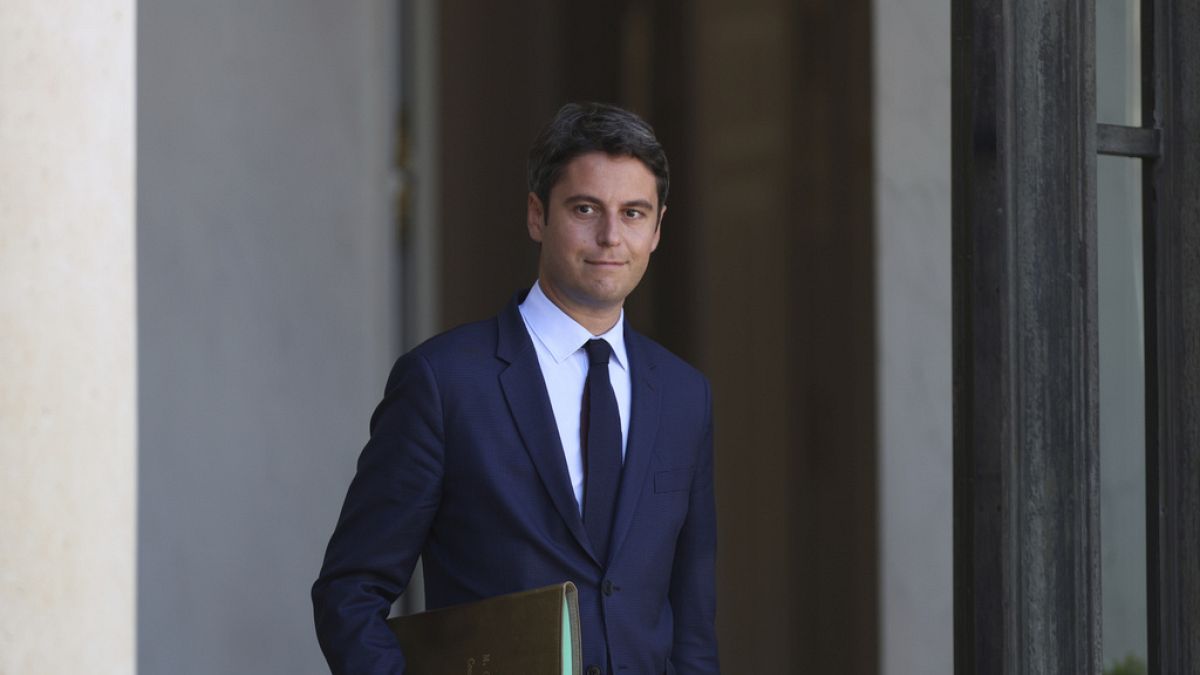French President Emmanuel Macron has officially accepted the resignation of his Prime Minister Gabriel Attal on Tuesday evening. Attal, who has only been in the position since the beginning of the year, and his cabinet will continue to serve as a caretaker government during the upcoming Paris Olympics until a new head of government is appointed. However, no political measures can be taken during this interim period, which could pose a democratic issue if it lasts for an extended period, especially considering the complications in appointing a replacement prime minister following France’s legislative elections.
The left-wing alliance known as the New Popular Front (NFP) is facing challenges in selecting a replacement prime minister. Despite winning the majority of seats in the legislative elections, the alliance has been unable to reach a consensus. On Monday, the Socialists, Communists, and Greens agreed on Laurence Tubiana, a diplomat and economist known for her role in drafting the Paris Climate Agreement, as a common candidate. However, her candidacy was rejected by the France Unbowed (LFI) party within the alliance, with some members citing concerns about her proximity to Emmanuel Macron. The France Unbowed party believes that Tubiana’s candidacy would deviate from the alliance’s program, leading to further divisions within the left-wing coalition.
The New Popular Front’s struggles to find a suitable replacement for Gabriel Attal highlight the challenges of governing amidst political divisions. The rejection of Laurence Tubiana as a candidate for prime minister by the France Unbowed party underscores the internal disagreements within the left-wing alliance. The inability to reach a consensus on a new head of government may prolong the caretaker government’s tenure, potentially impacting the continuity of the state. These developments raise concerns about the effectiveness and stability of the government during a critical period, especially as France prepares to host the Paris Olympics.
The appointment of a new prime minister is crucial for maintaining political stability and continuity in France. The prolonged caretaker government status could hinder the implementation of key policies and decisions, affecting the country’s governance. The disputes within the left-wing alliance regarding the selection of a prime minister reflect broader ideological differences that could impact the government’s ability to address pressing issues. As negotiations continue to appoint a new head of government, it remains to be seen how the political landscape in France will evolve and how these developments will shape the country’s future direction.
In conclusion, the resignation of Prime Minister Gabriel Attal and the challenges faced by the left-wing alliance in selecting a replacement underscore the complexities of governing in France’s current political climate. The inability to reach a consensus on a new head of government has raised concerns about the continuity of the state and the effectiveness of the caretaker government. As France navigates these political uncertainties, the appointment of a new prime minister will be critical in ensuring stability and addressing key issues facing the country. The outcome of these negotiations will have far-reaching implications for France’s political landscape and its ability to govern effectively.











